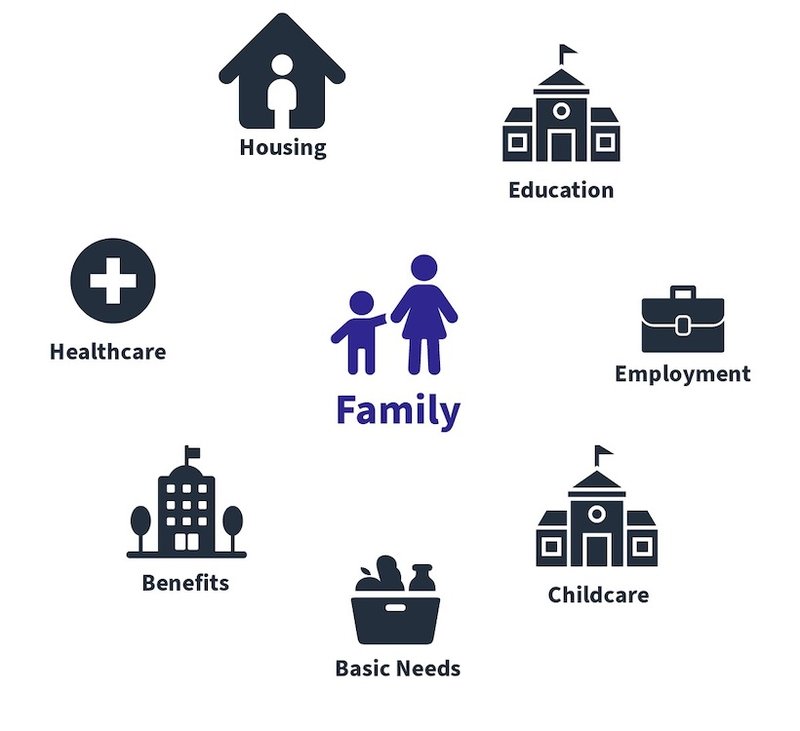The challenge
More than 300 families experience homelessness on any given night in Connecticut, according to a count from 2019. Most research about homelessness focuses on individuals rather than families. However, families often have unique needs that require specialized support—such as finding childcare on top of housing and employment. Connecticut Governor Ned Lamont formed a task force to better understand and address the needs of vulnerable populations facing housing instability and homelessness. Bloom Works was recruited to support this effort by focusing on families with children experiencing homelessness. More specifically, we were charged with identifying opportunities where data and technology could help address their complex challenges.

Our research found that a number of interrelated factors—like access to child care, housing, and employment—have a significant impact on families accessing the state and programmatic support services that they need.
The project
In collaboration with the Department of Housing, the Office of Early Childhood, Governor Lamont’s task force, and Coordinated Access Networks (CANs) across the state, our team conducted in-depth research to understand the complexities for families experiencing homelessness.
From October 2019 through February 2020, we:
- Interviewed more than 40 people, including staff from state agencies, professionals who provide direct service to people experiencing housing instability, community partners, and parents experiencing housing instability
- Attended 2 housing solutions meetings where various groups discuss housing options and services for families
- Attended a community listening session held by OEC to hear about home visiting for families experiencing housing instability
- Observed the creation of 2 “by-name lists,” which are used by various groups to identify vulnerable families to be prioritized for housing
Our research pointed to data gaps and inefficiencies when tracking families experiencing homelessness in Connecticut. The research also found that a number of interrelated factors—like access to child care, housing, and employment—have a significant impact on families accessing the state and programmatic support services that they need.
The result
Based on our initial findings and the project’s short timeline, Bloom identified 3 key areas that we could meaningfully contribute to:
- Generating agency-wide awareness. Bloom helped write a report for state agencies on the distinct challenges faced by families with children experiencing homelessness and opportunities to address them.
- Improving a tool used to coordinate support services. The team delivered detailed recommendations for improving the usefulness and usability of the tool used to create the by-name lists, including design and technical prototypes.
- Data sharing. The team worked with the Office of Policy and Management (OPM) to develop a data sharing playbook for Connecticut based on the data gaps we identified and the different data-sharing approaches across agencies.
The team’s work resulted in new inter-agency attention to families experiencing homelessness. The report and data playbook also enabled a more coordinated effort for agencies within Connecticut to help the most vulnerable families access employment, child care, and housing.

